A Post-Lockdown Foray In A 1946 MG TC, Or How To Live Life Again
Images: T R Raghunandan
After the devastation of the second wave of Covid-19, it was time to cautiously air our old beasts, clear the cobwebs and banish some gummy petrol blues. What better time to do this than in July, in Bangalore?
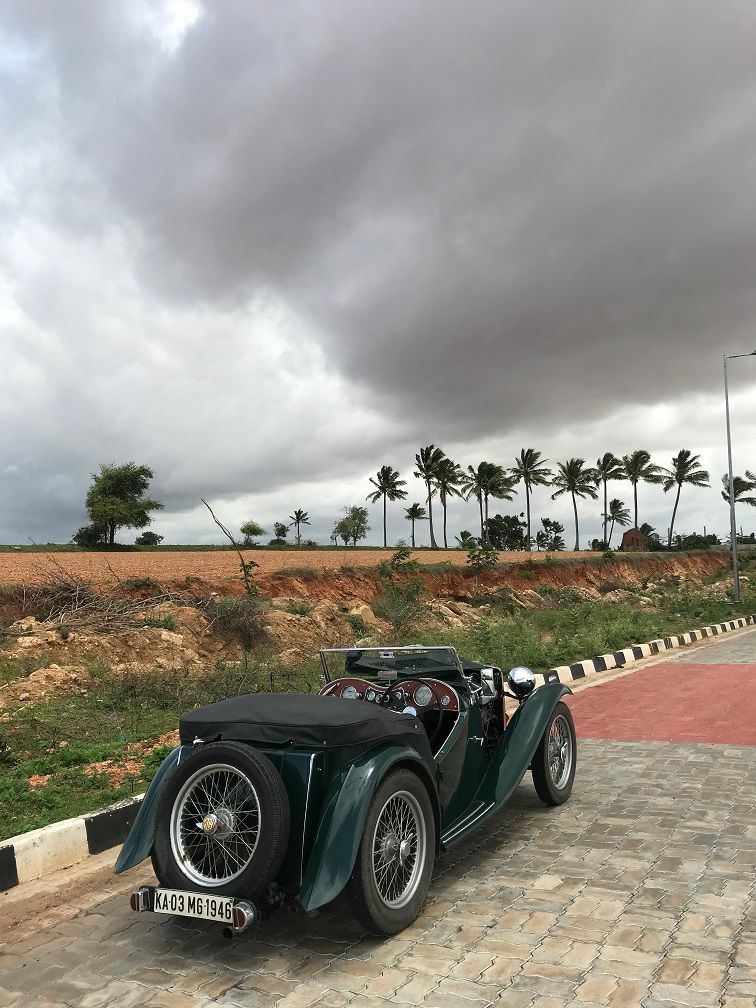
For the rest of India, July brings but a temporary respite from the heat. After the initial relief of the first monsoon rains, the sun fights back and resumes control. It is now hot and humid.
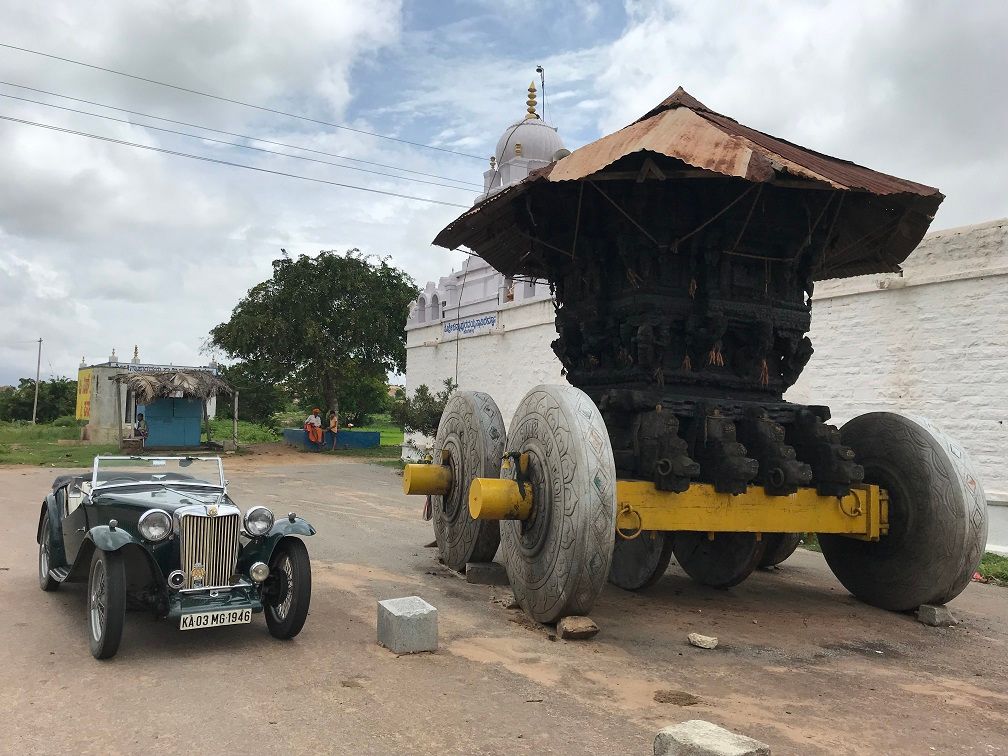
Not so in Bangalore: June, July and August are heavenly months here. There are beastly thunderstorms, courtesy global warming, but often times they seem like they have never changed. Most days welcome scudding dark clouds overhead, a gentle breeze, temperatures in the low twenties and a wispy rain.
An ideal time to take the cars out.
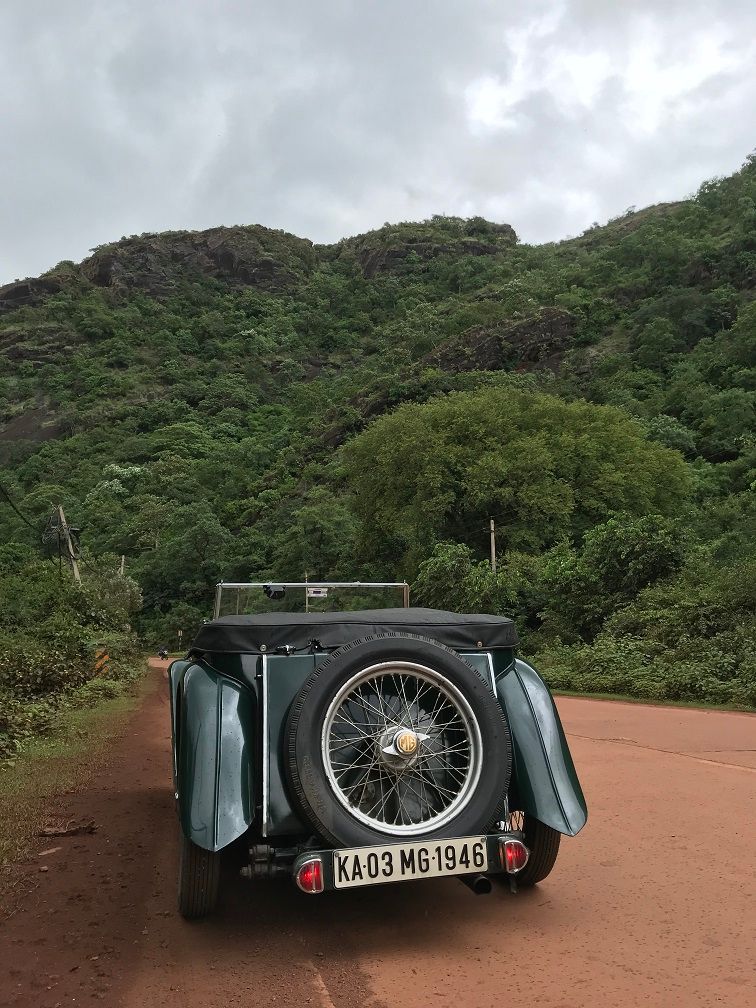
My first foray in the year, apart from a few day trips, is to the tabletop of Sandur town. Located 340 kilometres north of Bangalore, Sandur still retains its greenery in spite of intense iron ore mining. Recent strict controls on mining, plus investments in good roads and afforestation, have somewhat reduced the environmental damage.
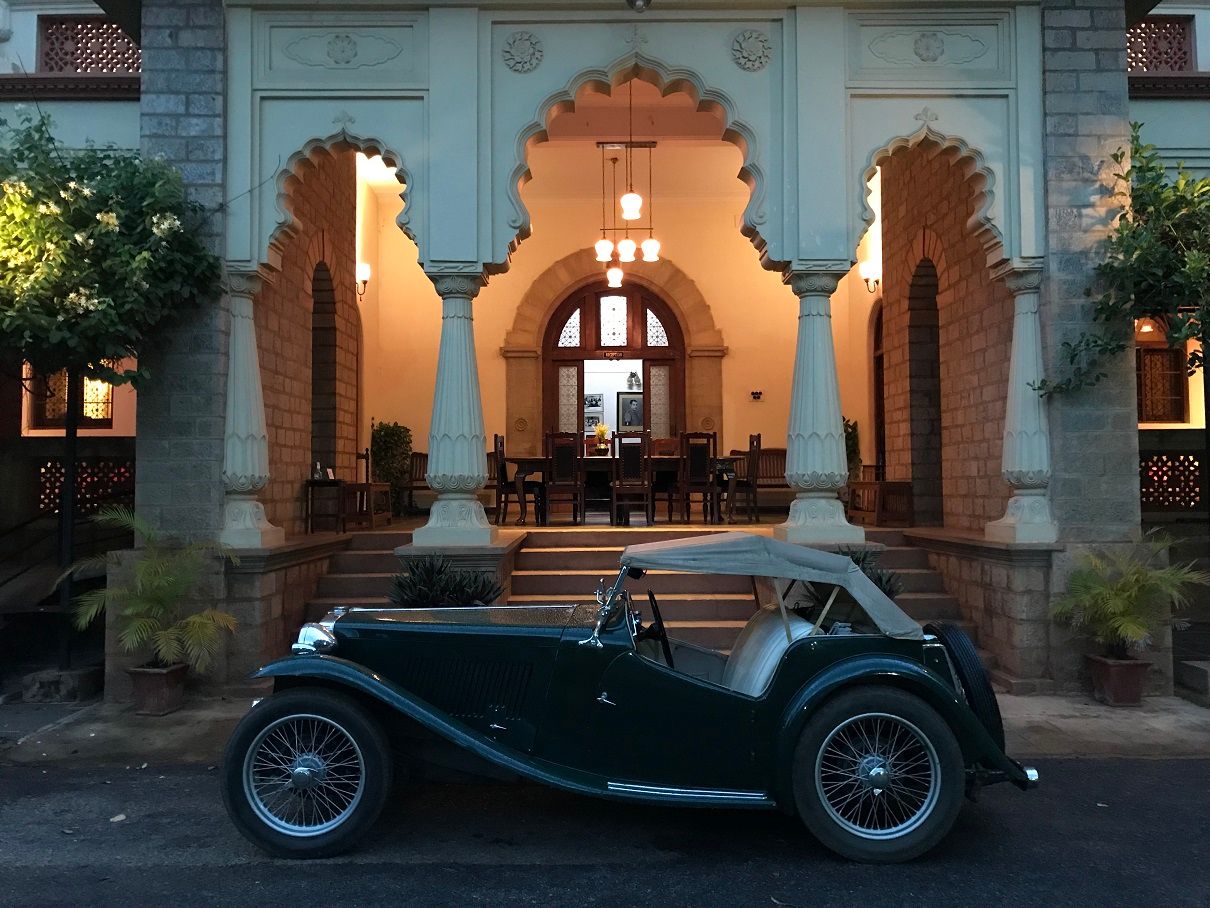
My car of choice is Dev, my 1946 MG TC. It is unabashedly a rainy-day car. There is nothing more fun than a low English sports car, heading into a storm, on a twisty road.
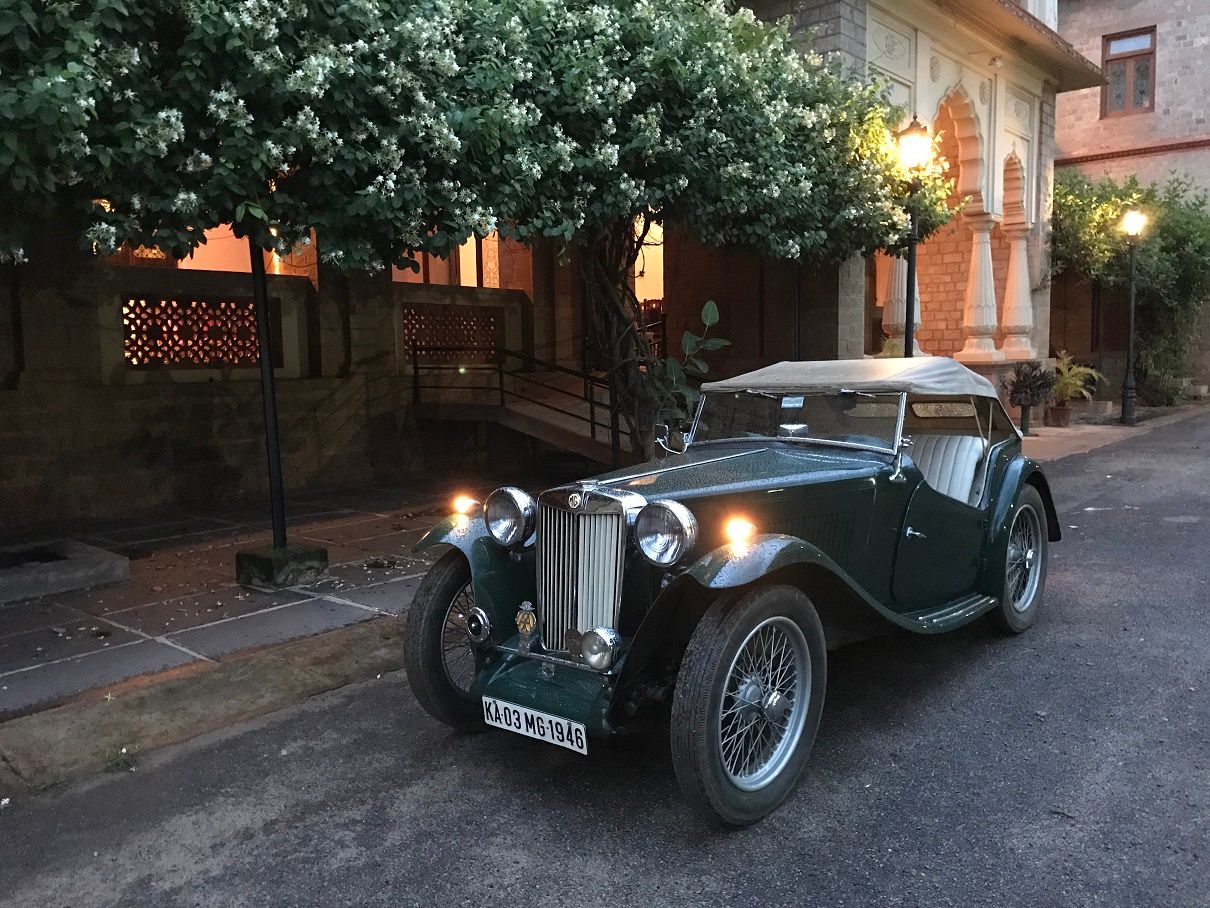
As usual, the getaway from the city is the most stressful part of the journey. One no longer complains about the bad internal roads of Bangalore; just accepts them in resignation. The MG does not enjoy it, either. However, once past Yeshwantpur and free of the dawn’s rush hour, the car settles into its usual happy burble. My passenger for the onward journey is Sai Krishna, who was largely instrumental in putting the MG back into reliable mechanical condition.
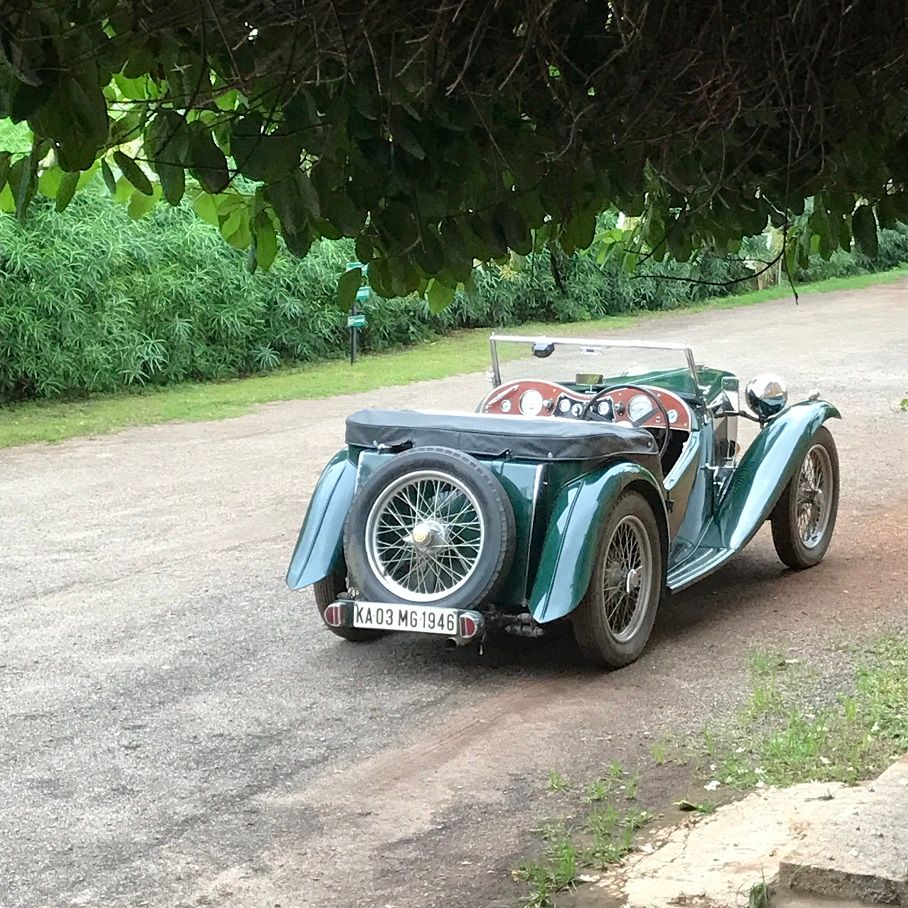
We converse only about the car, of course, but mostly prefer silence. There can be no greater pleasure than breathing in the bracing Deccan monsoon air, with the throaty cry of the MG exhaust ringing in one’s ears. The hood remains down for the entire 340-kilometre distance. It was that sort of a day.
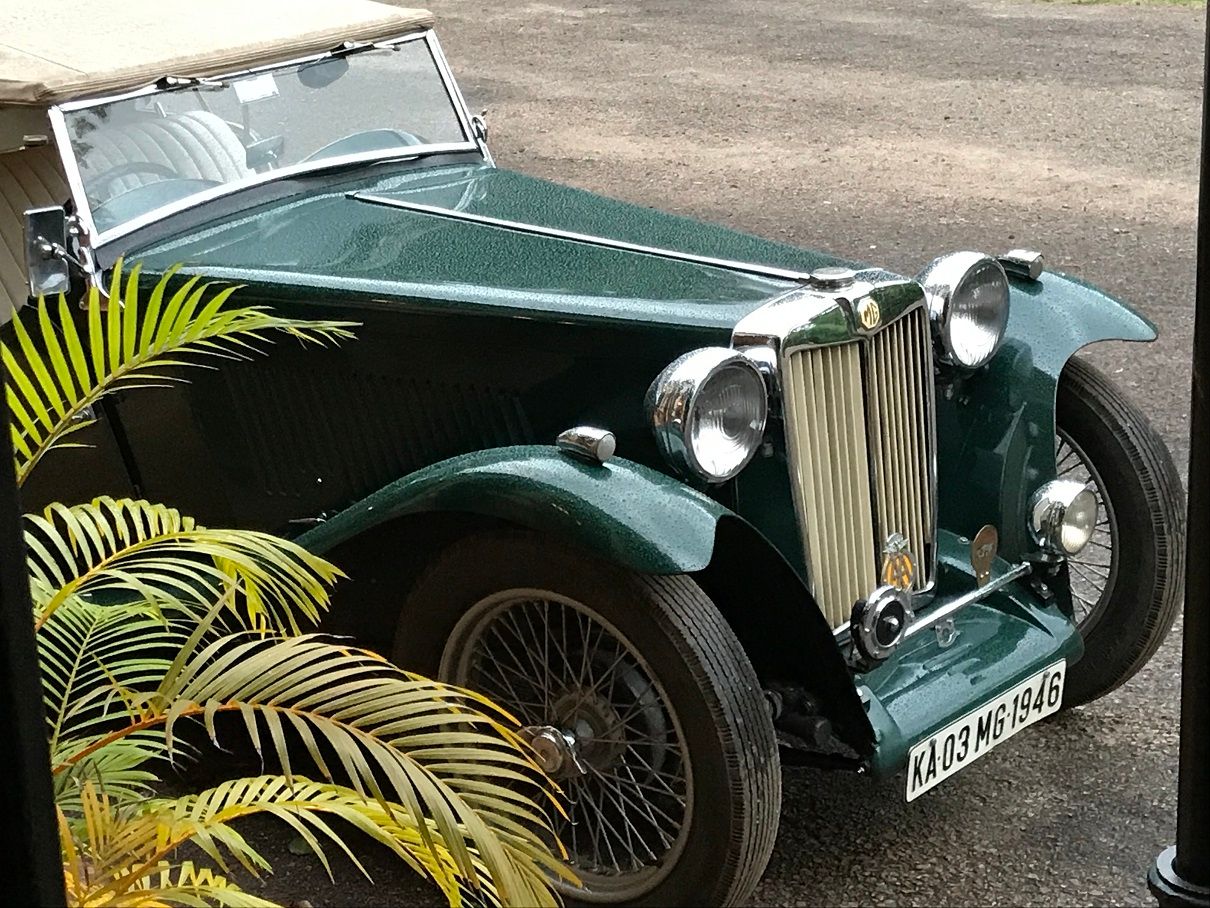
“See Sandur in September,” says a sign on the twisty forest road before one enters the town. June, July and August, and indeed, all the way to January is a good time for visiting this often-bypassed oasis.
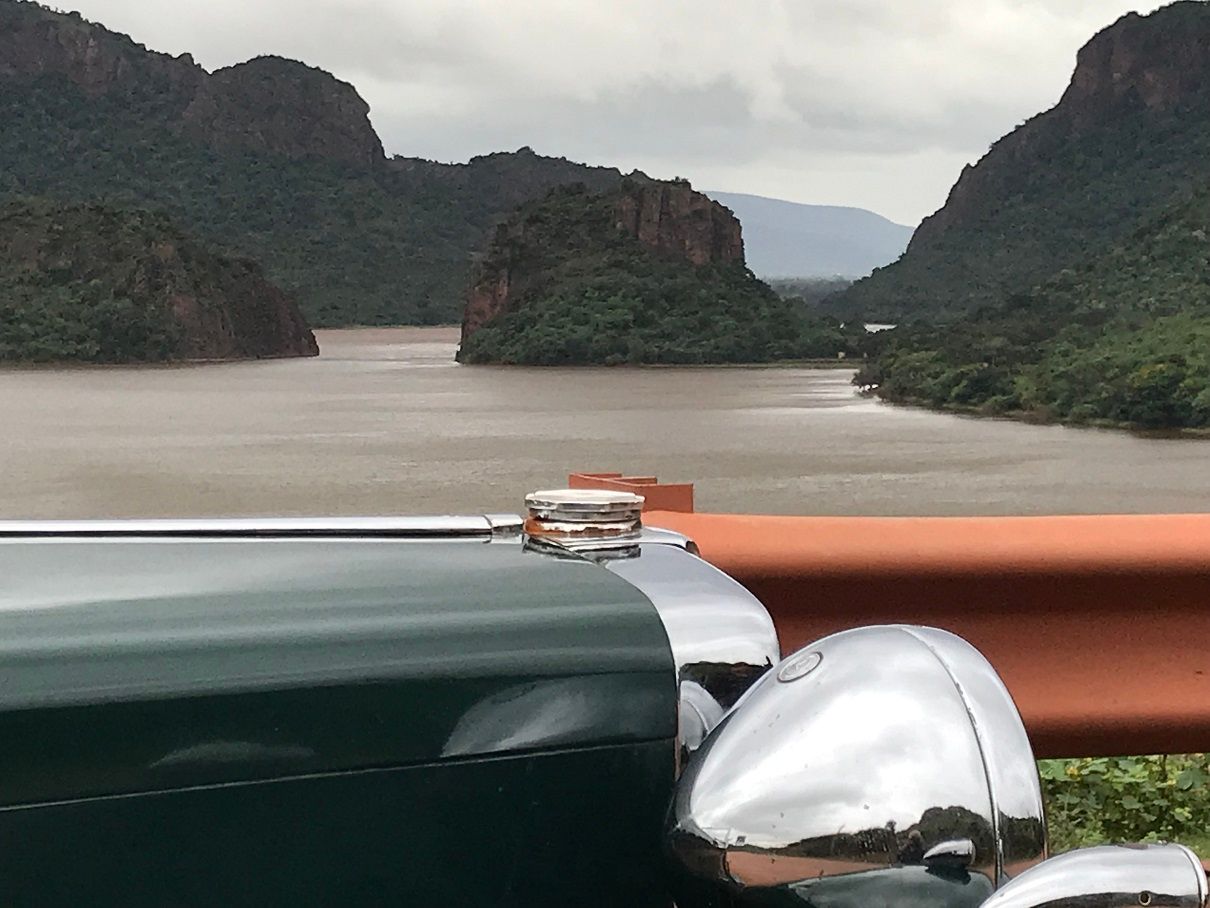
The highway is clear after Tumkur. I do not check the speedometer, but the rev counter in front of me steadies to 3200rpm as the engine warms up. We must have hit a shade over 80 km/h, I reckon. After a bad patch of road at Kudligi town, where we turn away from the Sholapur highway, the internal roads are delightful. As we twist through the Bandri reserve forest, I throw the car into the bends. The roadholding is excellent, courtesy the stiff suspension. The rain has kept the iron ore dust down, but the tarmac is orange. We make light of the puddles, driving faster if the rain intensifies.
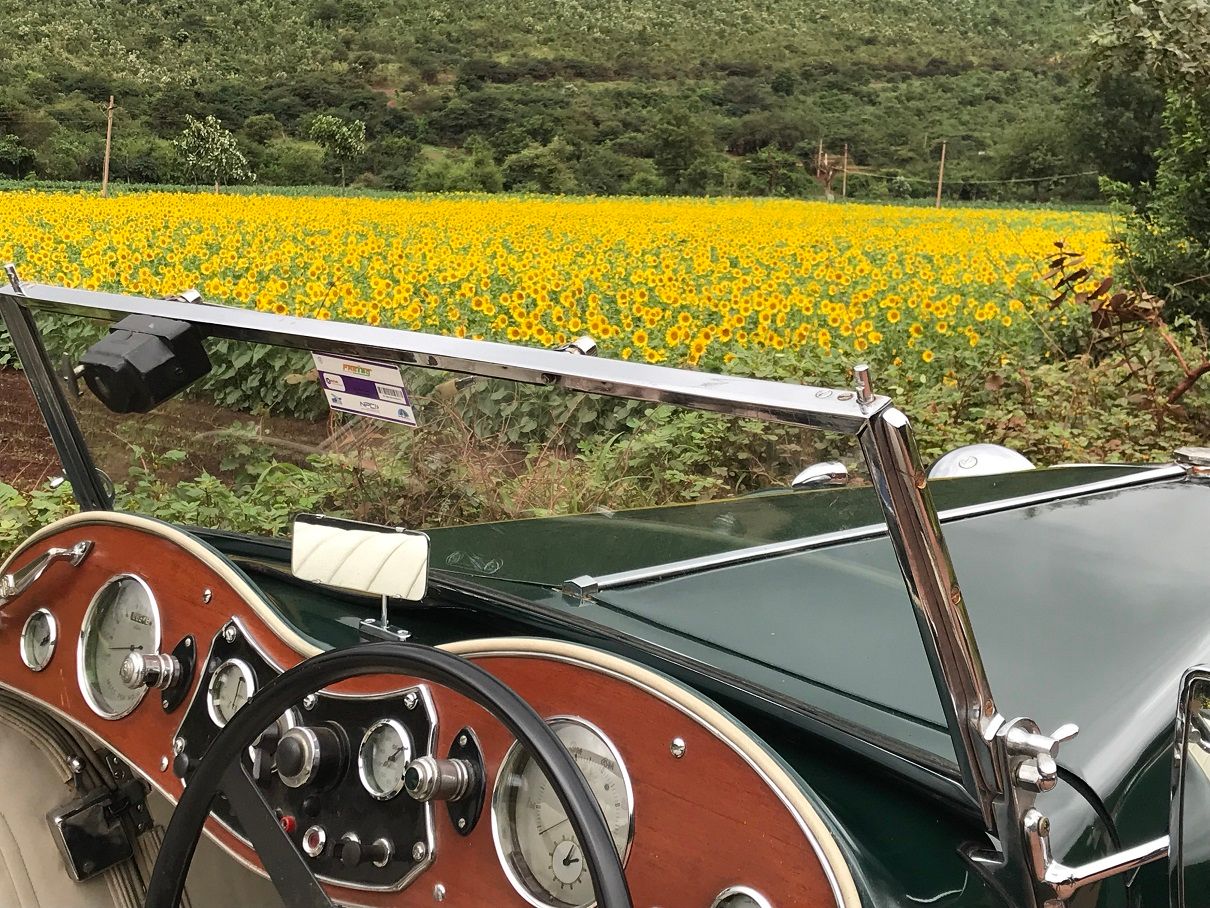
The highlight of the town is the Shivavilas Palace, former home of the erstwhile royal family of the princely state of Sandur. One of Karnataka’s best heritage hotels, it makes for some great photos, particularly at dusk. The hotel has a motorhome with some of the cars used by the family on display. They include a late 1920s Dodge limousine, a finned Mercedes of the 1960s used by the former maharaja, Y R Ghorpade, and the beloved Jeep four-wheel deluxe model, used by his son. M Y Ghorpade, MYG as he was known, was a multifaceted personality; he was a minister for three terms in the government, and one of India’s best wildlife photographers in his time. The Jeep, with its customised sunroof, which enabled him to take photos at will, was his constant companion during his safaris.
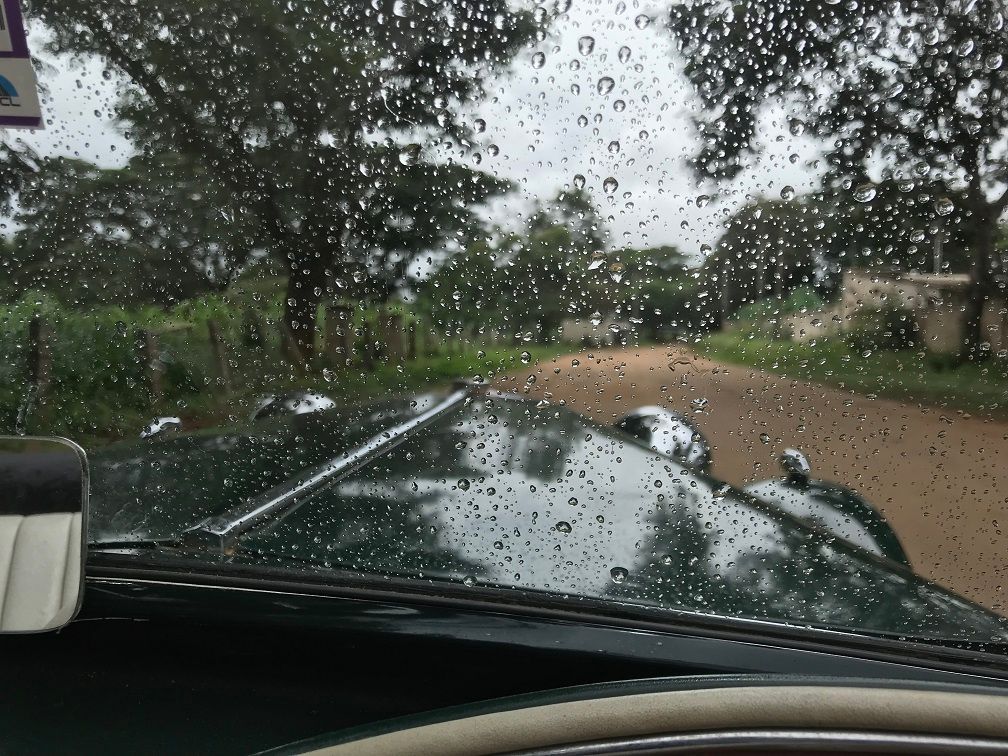
There are some great drives around Sandur, as the roads have been considerably improved. Watch out for the diabolic speed-breakers, though. I crawled over them diagonally, to ensure that I did not scrape out my TC’s low slung bottom.
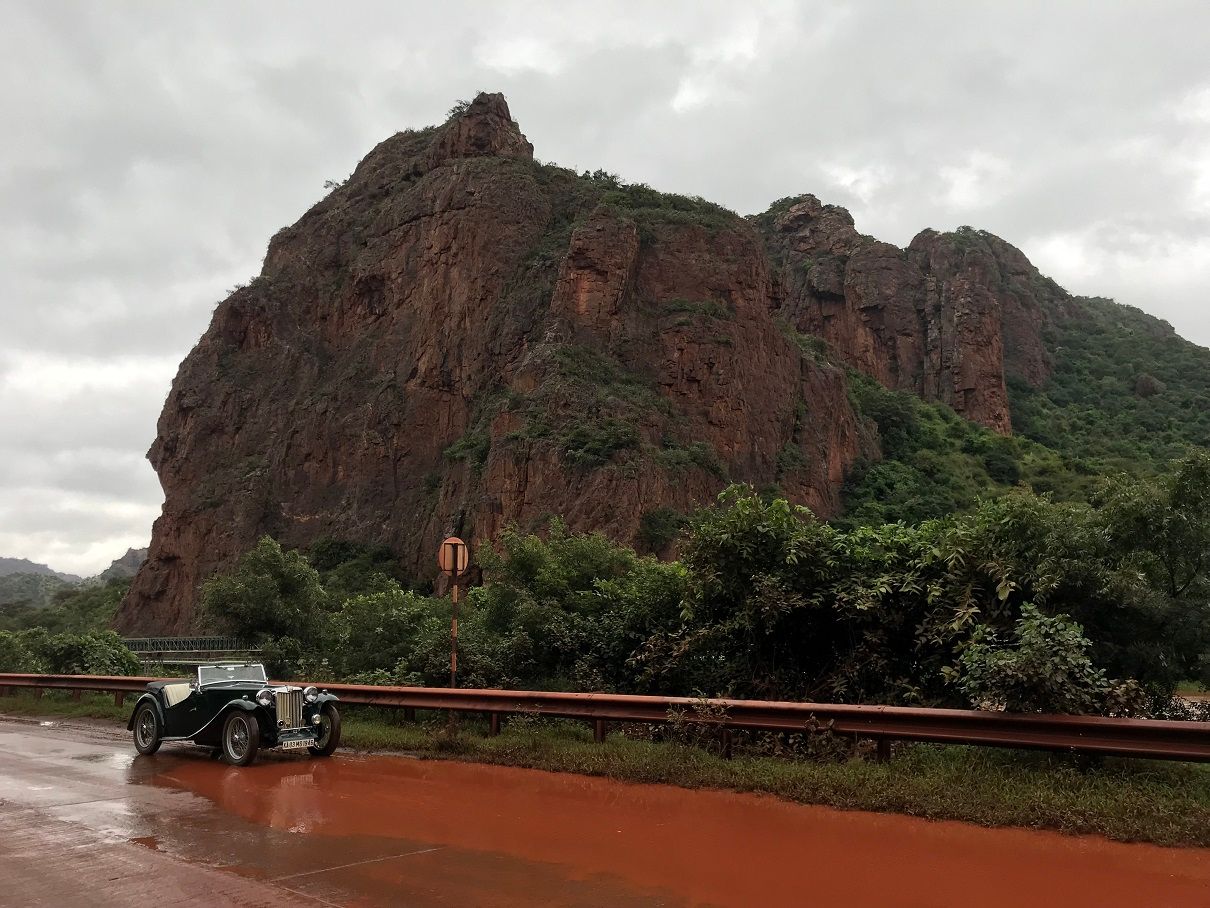
It was a good opening gambit for the driving season, with over 700 kilometres clocked. Yes, a thorough pressure wash was inevitable, to wash away the clinging iron ore dust. If the third wave does not bung a spanner in the works, this is an auspicious beginning to a driving autumn, and winter.
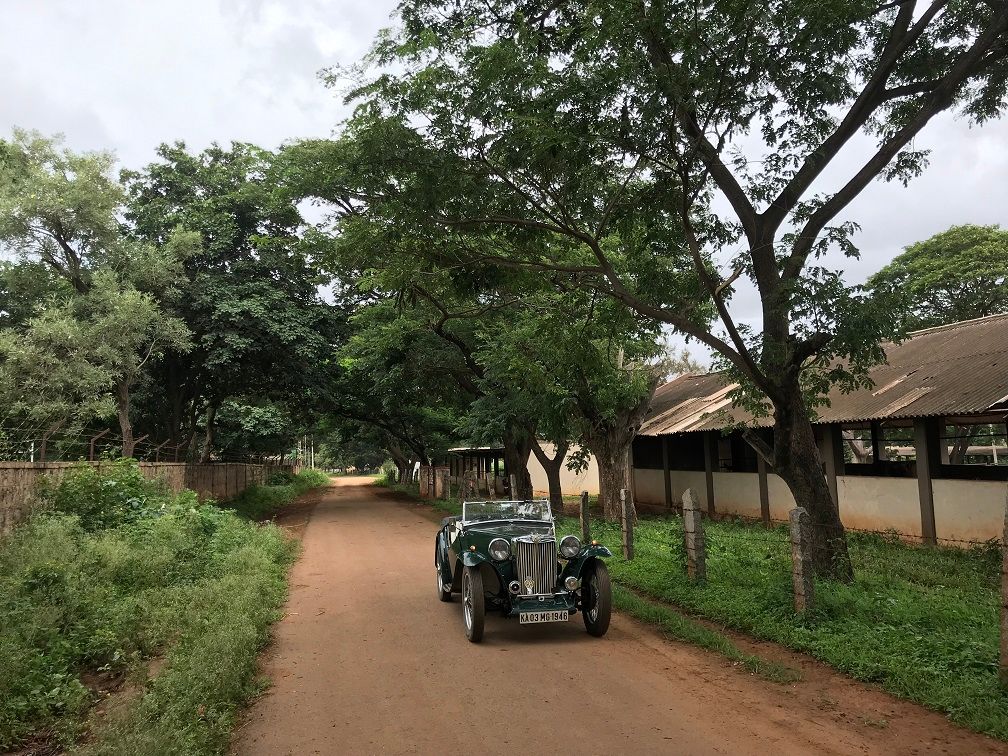
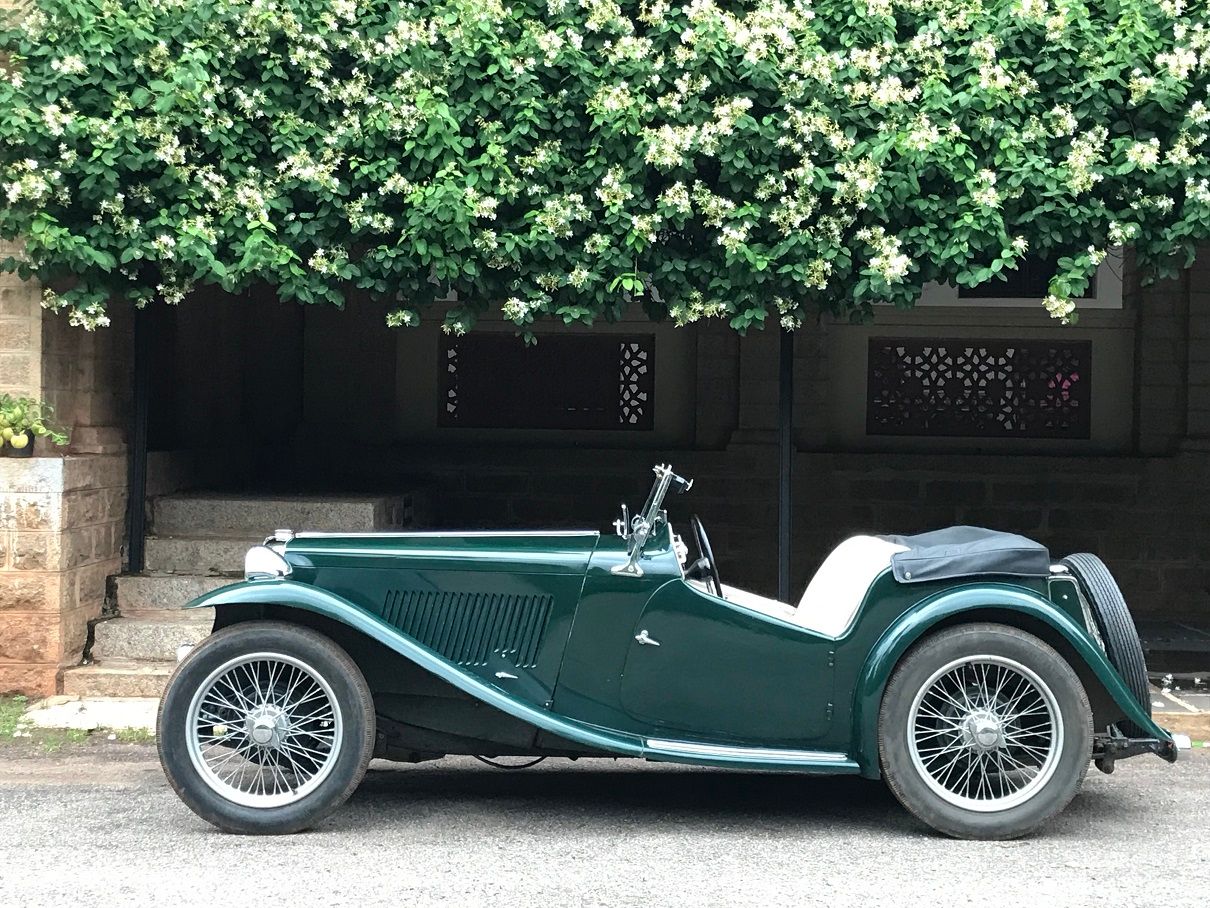
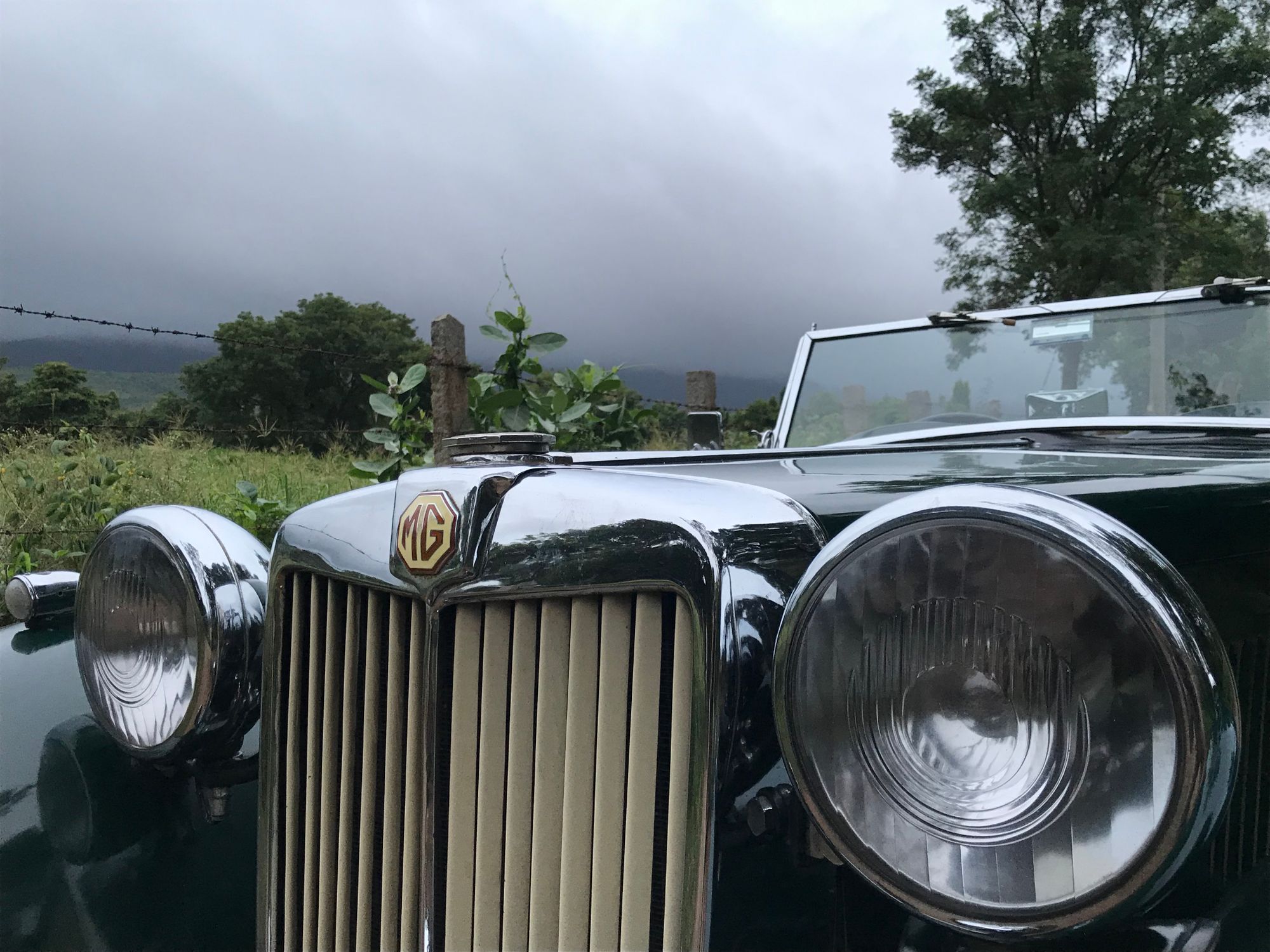
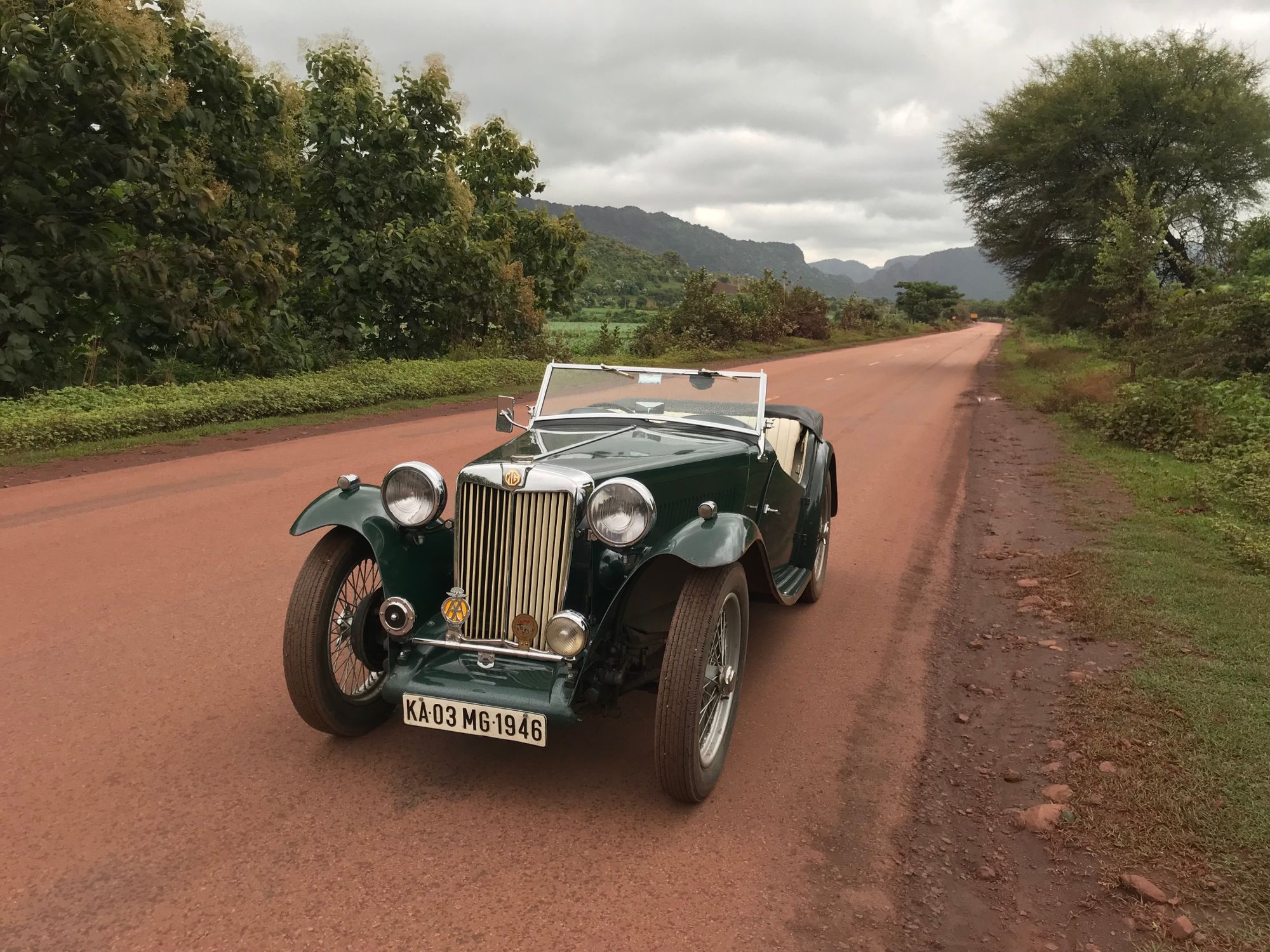
Comments
Sign in or become a deRivaz & Ives member to join the conversation.
Just enter your email below to get a log in link.
